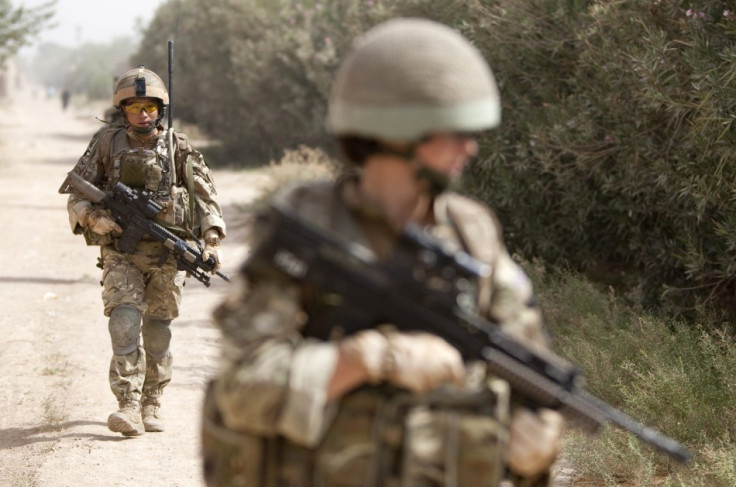Mental Health: US Army Men More Distressed By Sexual Harassment Than Female Colleagues

Military men find sexual harassment more distressing than women in the armed forces, according to research from the American Psychological Association.
Male army officers who are targets of frightening and threatening sexual harassment may experience more distress and work performance problems than military women who face the same treatment, according to the study, published in the Journal of Occupational Health Psychology.
The research revealed 52% of military women said they had been sexually harassed, compared with 19% of military men. Women more frequently reported that they were very frightened by the experience than their male colleagues, the research stated.
However, Isis H. Settles, the lead author of the study from Michigan State University, said: "The surprise was that men were more upset and debilitated after experiencing frightening sexual harassment than women."
She explained that men are less likely to think they will be sexually harassed, so the violation of their expectations results in stronger negative reactions.
"Another possibility is that men feel less able to cope with their sexual harassment than women, who know it's a possibility and therefore are perhaps more emotionally prepared."
Researchers examined data from a 2002 Department of Defense survey of 17,874 service members, of whom 9,098 were men. A total of 6,304 male and female soldiers reported experiencing sexual harassment while on duty in the last year. Of those, 28% were men, 64.5% were white, 21.5% were African-American and 14% were Hispanic.
The survey asked participants to recall one incident during the past 12 months that had the greatest effect on them and to rate the experience from being "not at all frightening and threatening" to "extremely frightening and threatening".
Male soldiers reported that men were the perpertrators 52% of the time, while the other incidents involved both a man and a woman, or a woman alone. For women, 86% of the harassment was by men, while the remaining incidents involved both men and women or only a woman.
While soldiers of both genders reported more distress if sexually harassed by a higher ranking soldier, women reported more fear than men when their harasser was higher ranking. A total of 46% of men and 68% of women were sexually harassed by someone of higher rank.
Settles said: "Individuals were free to define how harassment made them feel. As such, frightening or threatening harassment could include experiences that were menacing, threatened their sense of job security, or were those they believed could escalate to an assault."
Preliminary figures released by the Pentagon earlier this month revealed there were around 5,400 reports of sexual assault last year. The number had risen from 3,774 in 2012, marking a 60% increase in reported allegations. According to Stars and Stripes, the US military newspaper, the number could rise before the final report.
This month, Brigadier general Jeffrey Sinclair, who admitted to improper relationships with junior female officers, was spared a prison sentence and dismissal. Advocates of military justice reform have said the case has proved the lenient approach taken by the authorities towards alleged sexual assault and misconduct.
© Copyright IBTimes 2025. All rights reserved.




















